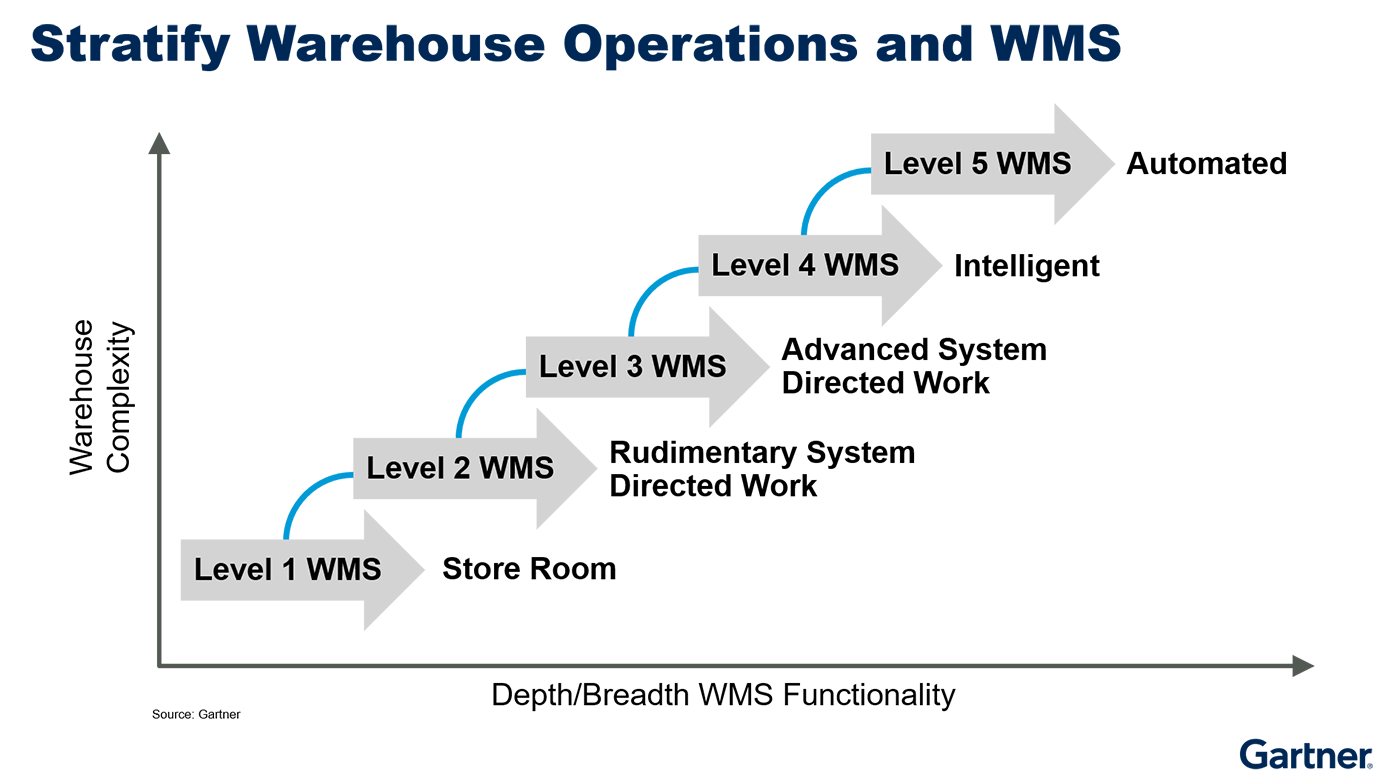Today’s business world requires companies to be able to fulfill consumers’ wishes in whatever ways possible. For example, if a consumer wants to purchase or return a product, the channels must be available at any point. Warehouse management systems (WMS) are a great way to ensure that consumers always have what they need when they need it. Newer cloud-based WMS offers new features that allow inventory to be managed and visible to consumers.
In fact, your organization can benefit from a cloud-based warehouse management system, and a company like Orases is a great place to get started. Read on to find out more about how you can get a WMS that is great for you!
What Is A Warehouse Management System?

A WMS allows companies to utilize their labor, space, and equipment effectively to optimize the use of resources and materials. These systems are specifically designed to support a supply chain from beginning to end, covering the distribution, manufacturing, and service business.
Cloud-Based WMS Benefits
While warehouse management systems make warehouses more effective, cloud-based WMS can benefit the progress and flow even more. When everything is done through the cloud, there are more options for storage, and you can streamline the ordering process.
These new technologies have begun to change how customers can purchase through a new digital realm. By being connected to the cloud, warehouse management systems can directly connect with customers. This offers customers real-time solutions for browsing and purchasing.
Orases offers these benefits along with others when it comes to their innovative cloud-based WMS. There are a couple of key benefits to implementing a cloud-based warehouse management system:
Fulfillment
In today’s economy, a warehouse’s ability to quickly and effectively process and fulfill customers’ needs is crucial. Not only does this help the consumers, but it allows companies to stay competitive with the rapidly growing markets. However, a big component of this is adapting quickly, and cloud-based systems will enable you to do just that. You can quickly adjust and ramp up your supply chain system as needed.
Systems offering insights into logistics and statistics about your fulfillment services are readily available after a few weeks of use. This allows you to analyze, change, and adapt accordingly to meet consumer needs.
It also lets fulfillment processes be centralized in a single database. This helps overall functionality without an external IT team overseeing customer fulfillment. Overall, cloud technology allows you to more quickly and effectively fulfill consumer needs.
No Required Upgrades
Another great thing about cloud warehouse management systems is that updates and upgrades are integrated into the software as part of a comprehensive service. This means that there are no extra costs for upgrading them. Known as Software-as-a-service (SaaS), this process will automatically upgrade the system, eliminating IT costs and saving money.
Since everything is in a centralized system on the cloud, any necessary updates work similarly to phones or apps. As a result, updates will come naturally, giving consumers the latest technology without the extra costs or hassle of upgrading traditionally.
Lower Upfront Costs
One of the other great things about a cloud-based WMS is the lower upfront costs. Generally, this gives businesses an almost immediate return on investment (ROI). As previously mentioned, since everything exists on the cloud, there is no need for hardware, software, or IT specialists, which can cost money. In addition, a cloud-based WMS offers no upgrade or maintenance fees since everything is installed and managed through the cloud.
Flexibility Of Operations
Speed is crucial when it comes to delivering what your consumers need when they need it. Cloud-based operations allow for that speed and flexibility. Since everything is centralized and digital, cloud-based systems can actively keep up with rapidly changing markets and consumers. For peak buying seasons, these systems can adapt quickly and effectively.
This gives businesses some agility when it comes to drastic changes in the market. It also gives consumers an edge in making purchases according to the ever-changing market.
Warehouse Management Future (Cloud-based WMS)

Most often, a company invests in a WMS to streamline fulfillment, keep up with the evolving market, and control costs. The following benefits are how your organization can best leverage the future of a cloud-based WMS.
- Efficiency: A WMS has always offered solutions for increased efficiency. However, moving forward, offering cloud-based systems will be able to evolve in real-time with changing markets. In addition, they will be able to meet customers’ needs by offering simple solutions to making purchases online.
- Ownership costs: Overall, these cloud-based systems will also decrease the costs that businesses pay to have a WMS integrated. The built-up costs of IT and management services will no longer exist due to streamlining the system.
- Customer satisfaction: The main goal of a cloud-based WMS for customers is to increase satisfaction and allow customers to browse with ease. The faster a customer’s needs are met and fulfilled, the better their experience is, making this beneficial for businesses to implement. Allowing customers to make a purchase from anywhere at any time will streamline the process for businesses and consumers.
Warehouse Management Systems Evaluation
At this point, you have seen the benefits of including a cloud-based warehouse management system in your business. While there are many benefits that are a no-brainer, there are also plenty of WMS to consider. Since this is the case, it is important to be able to evaluate each one to gain a better understanding of what each offers and any constraints they may have.
Below are several things to consider when looking to purchase a cloud-based WMS:
Criteria for Comparison
When looking at all the options for a cloud-based WMS, you should pay close attention to the different features offered. Here are some of the top criteria to look for while evaluating these systems:
- Usability: Software should not be complicated. For those not well-versed in technology, they should be easy to understand and use. After brief training, anyone should be able to pick up on how to use this technology quickly.
- User Interface (UI): The tools that come with each WMS system may vary, but it is important to have clean and clear layouts. This makes them easier to understand and use. It will also increase overall functionality.
- Value for Cost: Cost should always be an important factor when it comes to technology. You want to get the most out of your investment, so it is important to consider the cost alongside the benefits of each WMS.
- Integrations: Software should offer many solutions regarding customer and company needs. You should include certain platforms offering payment plans and carrier tools for ease of use.
Key Features of the Best Cloud-Based Warehouse Management Systems
As you evaluate each WMS, it is important to remember that each one may offer slightly different features and benefits. Even though this is the case, you should still be able to figure out what you need from each. Here are six key details to consider when looking at what each offers:
Design: In terms of workflow, each software program should be able to tailor what is offered to optimize workflow. Each warehouse is different and will have different needs. Being able to optimize inventory and space is key.
- Tracking (Inventory): Regarding inventory tracking, WMS solutions should be a no-brainer. Each system should offer barcode scanning, radio frequency identification (RFID), or other technologies that allow for inventory to be tracked when moving from place to place.
- Receiving: Each WMS system should keep records of where items are. Some warehouses are huge, leaving room for error when it comes to packing and unpacking items. Since this is the case, keeping records is crucial.
- Packing: Zoning where each team works is also key when it comes to picking and packing items. This will help warehouse teams speed up their ability to quickly pack items, which increases efficiency.
- Shipping: A WMS should allow each business to get shipping forms, labels, and instructions easily.
Reporting: In business, insights are key. Each WMS should provide insights into warehouse operation and functionality to help teams improve.
Utilize the Benefits of a Cloud-Based WMS
Now that you understand how a cloud-based WMS functions, its benefits, and how to choose one, you are ready to begin investing in one for your business. If you want to avoid clogged inventory or simply offer a new solution for your consumers, a cloud-based warehouse management system can do just that.
Consider Orases for your cloud-based WMS needs. Reach out today for a comprehensive consultation to see how their software and services can help streamline your organization’s operations.





 Design: In terms of workflow, each software program should be able to tailor what is offered to optimize workflow. Each warehouse is different and will have different needs. Being able to optimize inventory and space is key.
Design: In terms of workflow, each software program should be able to tailor what is offered to optimize workflow. Each warehouse is different and will have different needs. Being able to optimize inventory and space is key.

